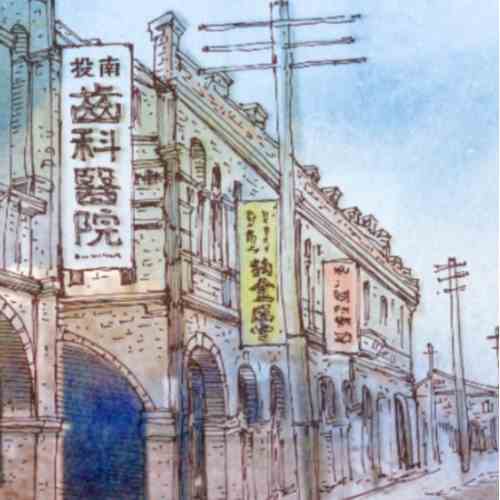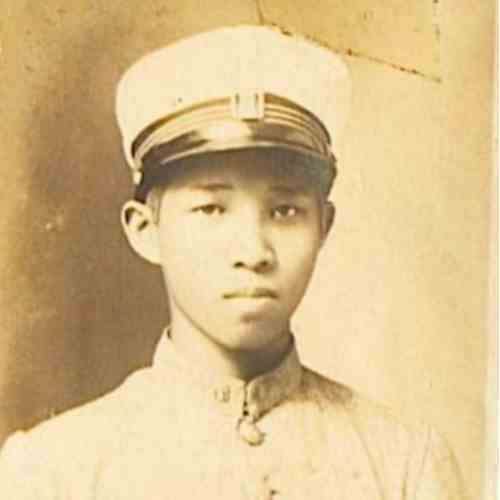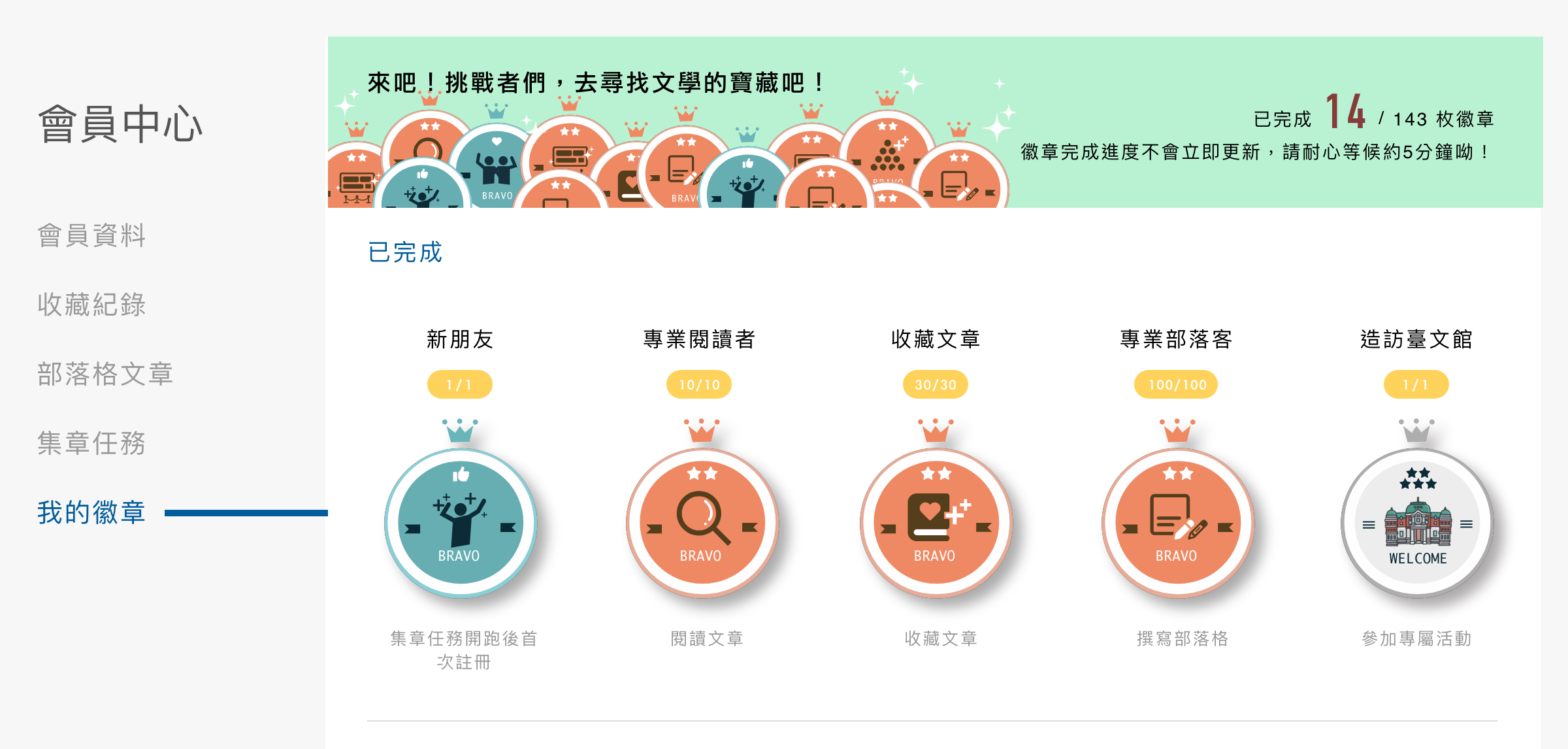Biography
.jpg)
⚈ Photo of Lung Yung-tsung. (Provided by Lung Ying-tsung)
Lung Ying-tsung was a male writer with a given name of Liu Jung-tsung. He used pennames such as Beardless Old Man of Taipei, Tu Nan-yuan, Peng Chih-yuan, and Liu Chun-tao. Born in Beipu, Hsinchu on August 25, 1911 (44th year of Meiji), Lung was a weak child when he was little. He staggered from time to time, and suffered from asthma. On September 26, 1999, Lung died, having enjoyed an 89-year life.
Lung graduated from the Department of Commerce, Taiwan Trade and Industry School, during the Japanese Rule. He worked for the Taipei Headquarter, Nantou Branch, and Hualien Branch of the Bank of Taiwan. After leaving BoT in 1942, Lung became an editor for Taiwan Daily Newspaper, National News, Children’s News, and Taiwan New Reports: Every Ten Days, a magazine under Taiwan New Newspaper; an editor-in-chief for the arts and literary section in Japanese and the head of the Japanese team for China Daily News; an officer in the Department of Civil Affairs, Taiwan Provincial Administrative Executive Office; and later a deputy officer in the Indigenous Administration Guidance Room, Civil Affairs Office. Lung at this time edited Shanguang Ten-day Journal alone. In 1949, due to personal finances, he transferred to Taiwan Cooperative Bank to be a clerk there. During this time, he and colleague Chang Wo-chun edited articles for the bank’s internal publication, Cooperative Journal, and was an editor for Baseball Community, a magazine. In 1976, he retired as a senior executive officer of Taiwan Cooperative Bank.
Most of Lung Ying-tsung’s works are novels. He divided his own works into two types, autobiographical and fictional. The former includes “Broken Clouds” and “Night Flow,” with the writer appearing in the stories as Tu Nan-yuan. The latter includes “Tu Fu in Chang’an,” “Woman on Fire,” and “Dark Moon, Rising Winds.” He also wrote reviews, modern poems, theatrical scrips, and essays. In 1937, for “A Small Town Planted with Papaya Trees,” a novel, the writer received the Excellence Prize of the 9th Reformation Novel Awards. This allowed him to ascend to Japan’s literary central stage and became acquainted with renowned Japanese writers such as Kikuchi Kan, Kume Masao, and Abe Tomoji. In 1940, he joined the Taiwan Writers and Artists Association and served as an editing committee member of Arts and Cultural Taiwan, a magazine published by the association. In 1942, he and Chang Wen-huan, Nishikawa Mitsuru, and Hamada Hayao were selected to be Taiwan’s representatives of the 1st Great East Asia Literary Forum. Since retirement, he picked up his writing pen again, first completing mid-length novels in Japanese such as “Ladies of Mazu Temple” and “Night Flow,” and full-length novel Vicissitudes. Starting in 1980, Lung focused on writing in Chinese and translated some of his previous works.
Chronology
| Year | Age | Event |
| 1911 | 1 | Born in Beipu Village, Zhudong District, Hsinchu Prefecture (present-day Beipu Township, Hsinchu County). The writer’s father was Liu Yuang-hsing and his mother was Liu Peng Tsu-mei. The couple had ten children and Lung Ying-tsung was the 8th. Lung’s given name was Liu Jung-tsung. |
| 1918 | 8 | In this year, Lung studied the Three Character Classic in the Peng’s Ancestral Hall and Private School under the imperial scholar Peng, father of his classmate Peng Rui-lu. However, his studies with Peng soon stopped due to intervention from Japanese police. The writer lost his chance of learning Chinese. |
| 1925 | 15 | In March, upon graduating from Beipu Public Elementary School, Lung enrolled in the two-year Higher Studies Division of the same school. He passed the written exam of Taipei Teachers’ College but failed physical examinations and an interview. Thus, he was not admitted. |
| 1933 | 23 | In this year, Lung acquainted with Hyodo Haruko (兵藤晴子), a female Japanese dentist working in Nantou. The two became closer by day. For this, Lung was warned by deputy manager of Nantou Branch of the Bank of Taiwan. |
| 1935 | 25 | March 20, Lung married Li Nai of Qionglin Village. |
|
1937 |
27 |
April 1, Lung published a short novel entitled “A Small Town Planted with Papaya Trees” in No.4, Issue 19 of Reformation, and received the Excellence Prize of the Reformation Novel Awards, with a cash award of 500 Japanese yen. Lung went to Japan for a month-long vacation and met members of the arts and cultural community there. He was invited by winner of the 1st Reformation Novel Awards Yasutaka Tokuzo (保高德藏)* and became a member of Capital of Culture and Arts. |
| November 12, Lung's eldest son Liu Wen-pu was born. | ||
| 1940 | 30 | In February, Lung's second son Liu Chih-fu was born. |
| 1952 | 42 | Lung wrote a short novel entitled “Hometown in Autumn” which has yet to be published. |
| 1979 | 69 | In July, Lung published a book of short novels entitled A Small Town Planted with Papaya Trees. Taipei: Vista Publishing. |
| 1979 | 69 | April 20, Lung published a short novel entitled “Night Flow” in Japanese in Ta-a-hin, a Japanese magazine. |
| 1987 | 77 | March 25, Lung published “Homecoming: Sketching Beipu Township, Hsinchu” in Taiwan Shin Sheng Daily News. |
| 1987 | 77 | April 20, Lung published “Contributors to Baseball in Taiwan” in 70th Anniversary of Kai Nan Vocational High School. |
| 1999 | 89 | September 26, due to pneumonia, Lung suffered from acute respiratory failure and septic shocks. At 18:35, he passed away at Renai Branch, Taipei City Hospital. |








